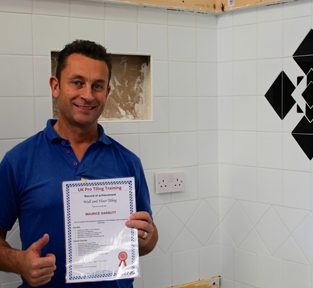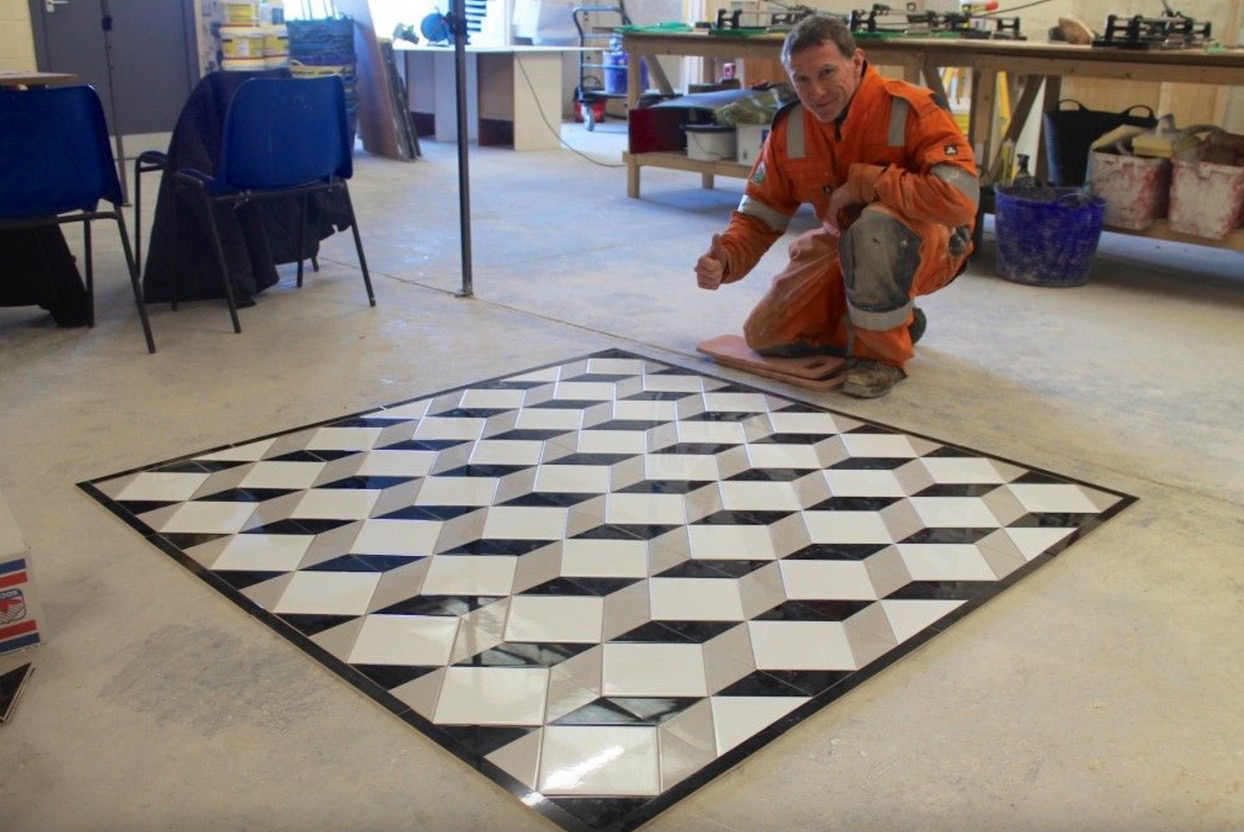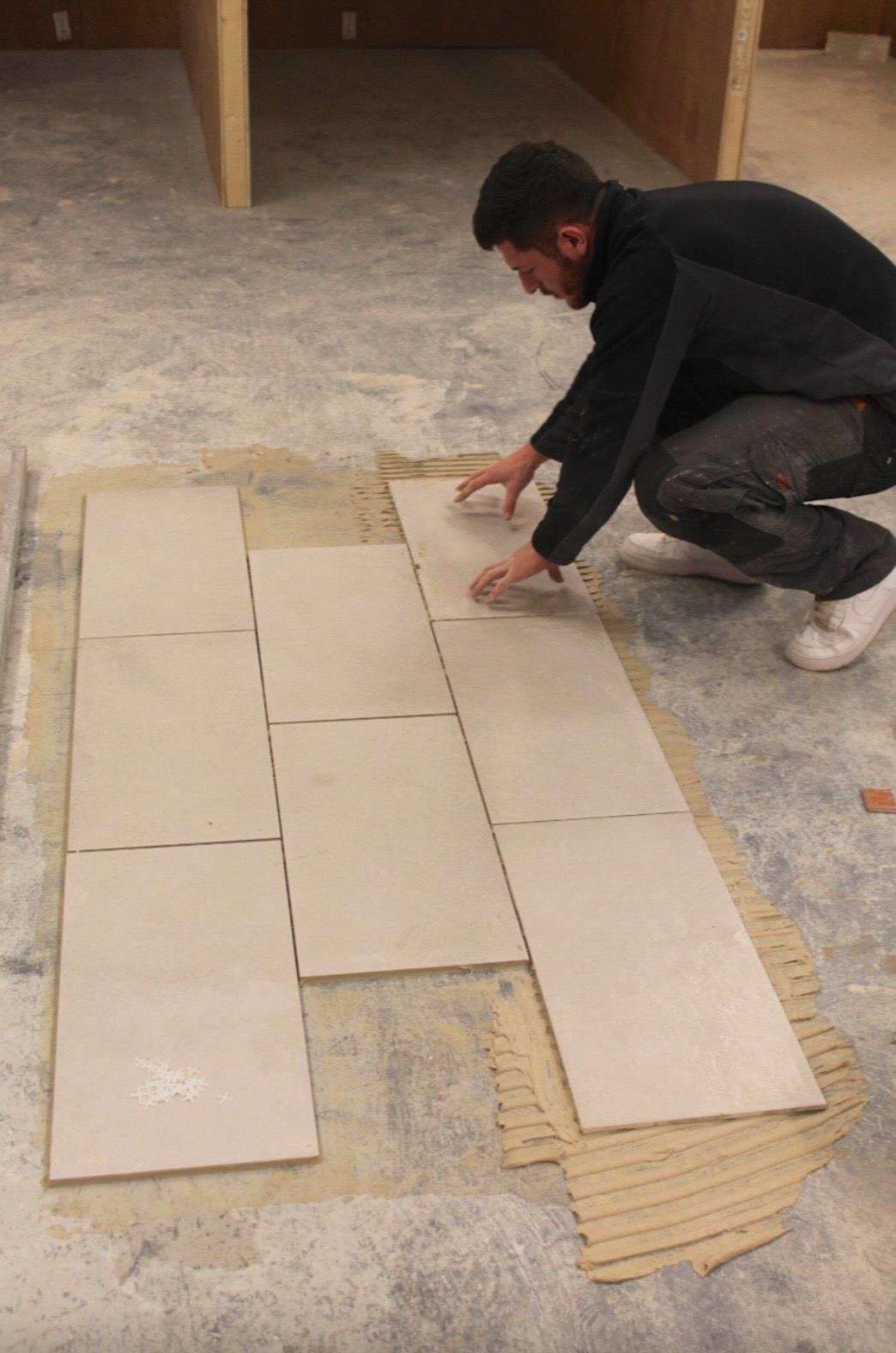Who Can Become a Professional Tiler?

For many people, learning a trade allows them to have a long and happy career with excellent prospects. Tiling is a trade that will always be in demand, and for people that prefer practical work – it’s a stable option.
The role requires a lot of skill, but it’s ideal if you want the opportunity to move abroad – because tiling is a consistent feature on Australia’s skills in demand emigration list.
In this post, we’re going to answer the question of who can become a professional tiler?
What Do Tilers Do?
Tilers have a diverse set of responsibilities, but their primary role is to work with various materials to create aesthetic features for a property. Take a look at your home, the properties of friends and family, and public bathrooms – you’ll notice the majority have tiles.
Tiling isn’t just for aesthetic appeal; it can also protect walls and is a better alternative for households with children and pets because tiles are easy to clean.
A typical day for a tiler might involve:
- Looking at floor plans to evaluate the scope of the work
- Measuring surfaces to work out material quantities
- Removing old tiles and preparing surfaces for retiling
- Applying tiles and maintaining the chosen pattern
- Using a range of tools to create the right look
- Removing current grouting and applying new grouting
- Installing waterproof systems
As you can see, it’s a varied role and no day will be the same. Many tilers choose to become part of a construction company, while others prefer to work on a self-employed basis.
What Skills Do Tilers Need?
While tiling careers offer fantastic progression and business opportunities, they’re not suited to everyone. As with many jobs, there is a distinct set of skills that could define your success as a tiler.
If you don’t have these skills, then there’s always the chance to learn them – which is vital to remember.
With the right mindset and commitment to improving their skills, anyone can become tiler and enjoy the rewards the career provides.
Mathematical Skills
Before you click away and decide tiling isn’t the career for you, we mean basic maths skills. You don’t need to be Russell Crowe in a Beautiful Mind, but you do need to be able to take measurements and work out how many materials you’ll need.
Providing you have basic maths skills, you can transfer them to your tiling career. If maths isn’t your forte, you can quickly learn how to measure an area and calculate the amount of materials you’ll need.
Attention to Detail
If you’re the kind of person that always notices when something isn’t symmetrical, then tiling could be the right career for you. Attention to detail is everything because tiling is an intricate job, which requires a lot of precision.
Not Afraid to Work Alone & With Others
Even tilers that work for construction companies find that they’re often alone. It’s an ideal set-up for introverts, but if you thrive on the company of others, then you might find working alone challenging.
For larger projects such as commercial or property development, you’ll probably work in collaboration with others -n which means you need to respect their space.
Responsible
People expect their contractors to arrive on time and complete the job by the agreed-upon deadline. The running joke that builders are always late and never finish a job is true in some cases. But contractors now know that people want to hire responsible tilers and if you can define yourself as one – you’ll get a lot of work.
It’s essential that you’re able to manage your workload and balance your time appropriately. If you’re the kind of person that’s always late and leaves a job unfinished, then tiling probably isn’t for you.
Knowledge of Computers and Mobile Devices
In today’s age of technology, it’s very unlikely that you don’t know how to use a computer or mobile device. Working alone means you’re responsible for arranging appointments and sending invoices.
You might also need knowledge of computers to work out the cost of materials and manage your diary. Most people have no problem with this part of the job, and there are plenty of useful apps around to make life easier.
Practical Ability
We’re all different, and while some people are more academic, others prefer practical work. Anyone can learn tiling techniques, but you might have a problem utilising them – especially if you’re not good with your hands.
How to Become a Tiler
There are many opportunities to embark on a tiling career, depending on your age and prior experience. The good thing about tiling is that plenty of people choose to change careers later in life, which shows that a college qualification in tiling isn’t always essential.
Some people become apprentices and work their way up into a professional career. Others might have a lot of experience with DIY tiling and decide to put that to use by taking the professional route.
The most cost-effective way to gain a recognised qualification is by using a specialist tiling training provider. You can learn at your own pace or attend an event led by experts.
It’s best to look at tiling courses online to get an idea of the type of training that suits your skills and experience.
Things to Consider
Tiling can be an enriching career, and with the business and emigration prospects it offers, it’s easy to see why so many are choosing to skill themselves up.
The most important thing is to find the proper training for your needs and check it’s going to let potential employers and clients know you’re reputable.
Please don’t settle for cheap training, because it probably won’t cover all bases and the money you do spend will be a waste.
Here are the main points to consider:
- Do you have the necessary skills, or are you willing to put the work in?
- Are you ready to commit to a career in tiling?
- Is a short term investment worth the long term benefits?
Tiling is one of those careers that will always be in demand. So, make the right choice and enjoy a world of opportunities.



